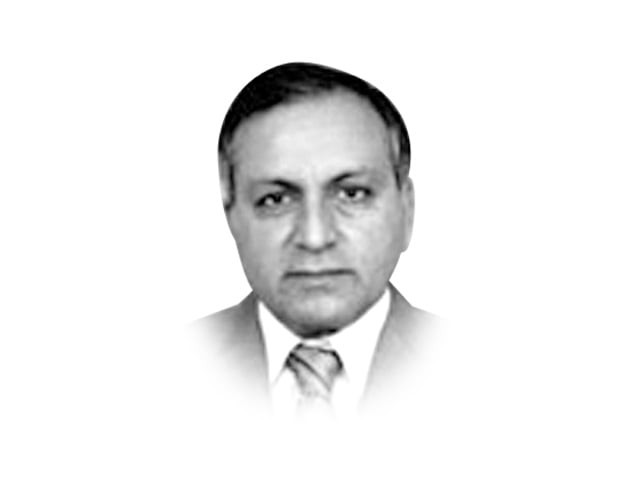General Naseerullah Babar — a legend of a man
There are few people in life — one in a million may be — who do not have the gene that causes fear.

General Naseerullah Babar — a legend of a man
Major General Naseerullah Babar, Sitara-i-Jurat (Bar), first achieved national acclaim during the war with India in September, 1965. On an operational mission in Kashmir, he landed his helicopter in a fortified position, which turned out to be an Indian camp 70 soldiers strong. Rather than being intimidated, his steel nerves turned the tables on the adversary. Told that they were surrounded, the contingent meekly raised their arms, handed over their weapons and surrendered. He won his second Sitara-i-Jurat during the 1971 war, again for courage bordering on the suicidal. It was in the Tribal Areas that General Babar was most in his elements. Appointed inspector-general, Frontier Corps, he, along with Mr Nasruminallah, the NWFP chief secretary, shaped the then-new ‘forward policy’ — Zulfikar Ali Bhutto was the prime minister at that time — to open and develop Fata which saw the construction of roads, schools, hospitals, small dams and industries.
Nasruminallah provided the intellectual underpinning for the forward thrust while Naseerullah was responsible for its implementation. Both men understood the tribesmen and had affection for them, unlike most others who followed them. Mohmand and Bajaur got their attention early. The road from Yusafkhel was extended to the Safi Plains and beyond to Nawaghai and Khar in Bajaur. Side valleys such as Chamarkund, Mamund and Salarzai were opened. In Orakzai Agency, the area upto Daburi was linked by roads, while in Kurram the Frontier Regions of Mussazai and Ali Sherzai saw major development. In Waziristan, Razmak was reactivated and a cadet college was established there. General Babar was always on the move and it was usual for him to visit one tribal agency or the other, two or three times a week. As the political agent of Mohmand once learnt to his amazement, General Babar, then NWFP governor, arrived alone with a driver at the agency headquarters in Ghallanai unannounced, unheralded and unescorted. On being requested not to visit the Tribal Areas without escort, he pointed to the assembled tribesmen and said they were his escort. There are few people in life — one in a million may be — who do not have the gene that causes fear. And General Babar was one of them. Told one day that a large gas tank in a factory in Nowshera was about to explode, he hurried to the location of the plant. Nonchalantly, and much to the horror of onlookers, he ascended the steps, fidgeted with the gauge and got it back to normal. He then berated the plant’s engineer for needlessly harassing the people since the only thing that had happened was that the gauge had malfunctioned!
Nothing depicts the honour and character of General Babar more than his decision to join the PPP a day after martial law was imposed in 1977. He said then that this was the only way he could express his solidarity with Mr Bhutto who had forever shown him kindness.
A week before his death, someone complimented him for his courage and boldness; the old general, robust of mind in a weakened body, replied that he was rash rather than bold. To achieve the objective, you need “nobility of purpose, coupled with rashness in execution”, he said.
There was a softer side to him as well. In the last three decades of his life, when, except for a brief stint, he remained a private citizen, his home would swarm with people, mostly tribesmen, asking for his intercession. He was also an avid reader and had perhaps the finest Gandhara collection in private hands, some of which he had willed to the state. He was a keen golfer and was given handicap strokes by his flight. Once, when the opponents contested his demand for strokes, he matter-of-factly told them that to be evenly placed on the course he would have to shoot the opponents three times each in the shoulder because that was the number of bullets he was carrying from the wars.
May the Almighty bless his soul.
Published in The Express Tribune, February 16th, 2011.
















COMMENTS
Comments are moderated and generally will be posted if they are on-topic and not abusive.
For more information, please see our Comments FAQ